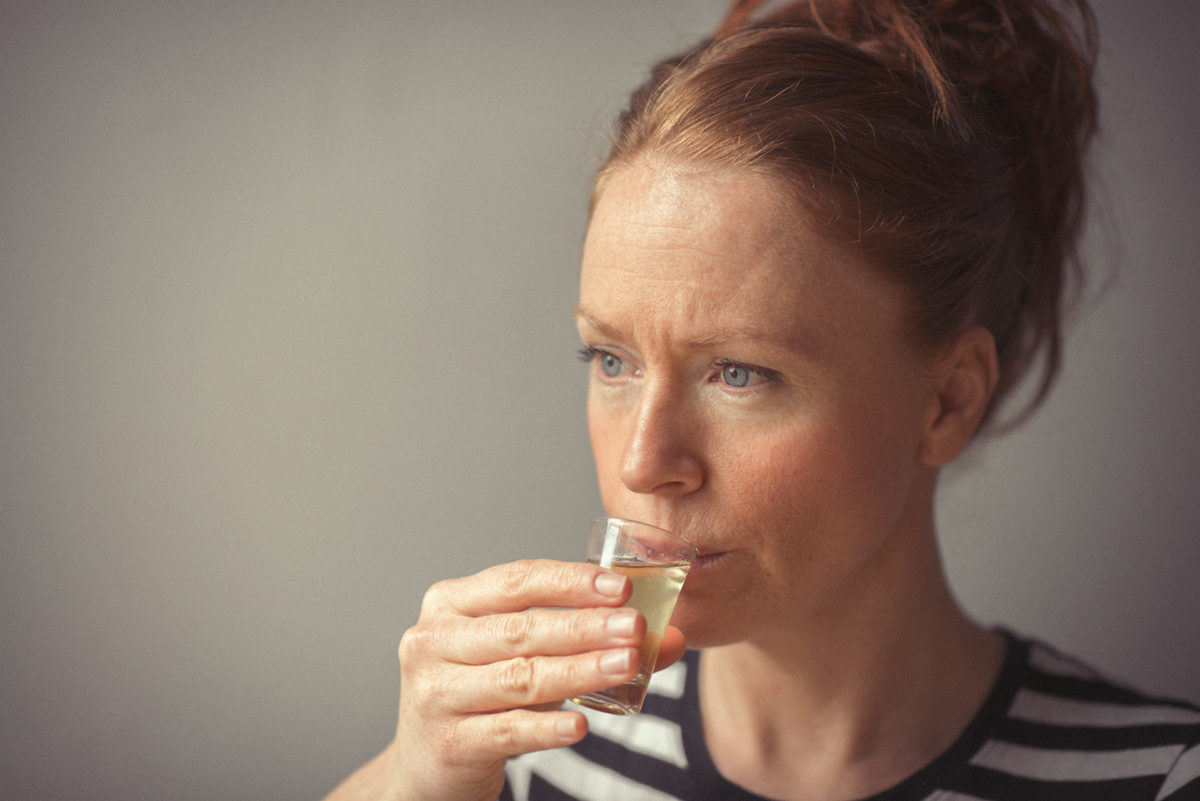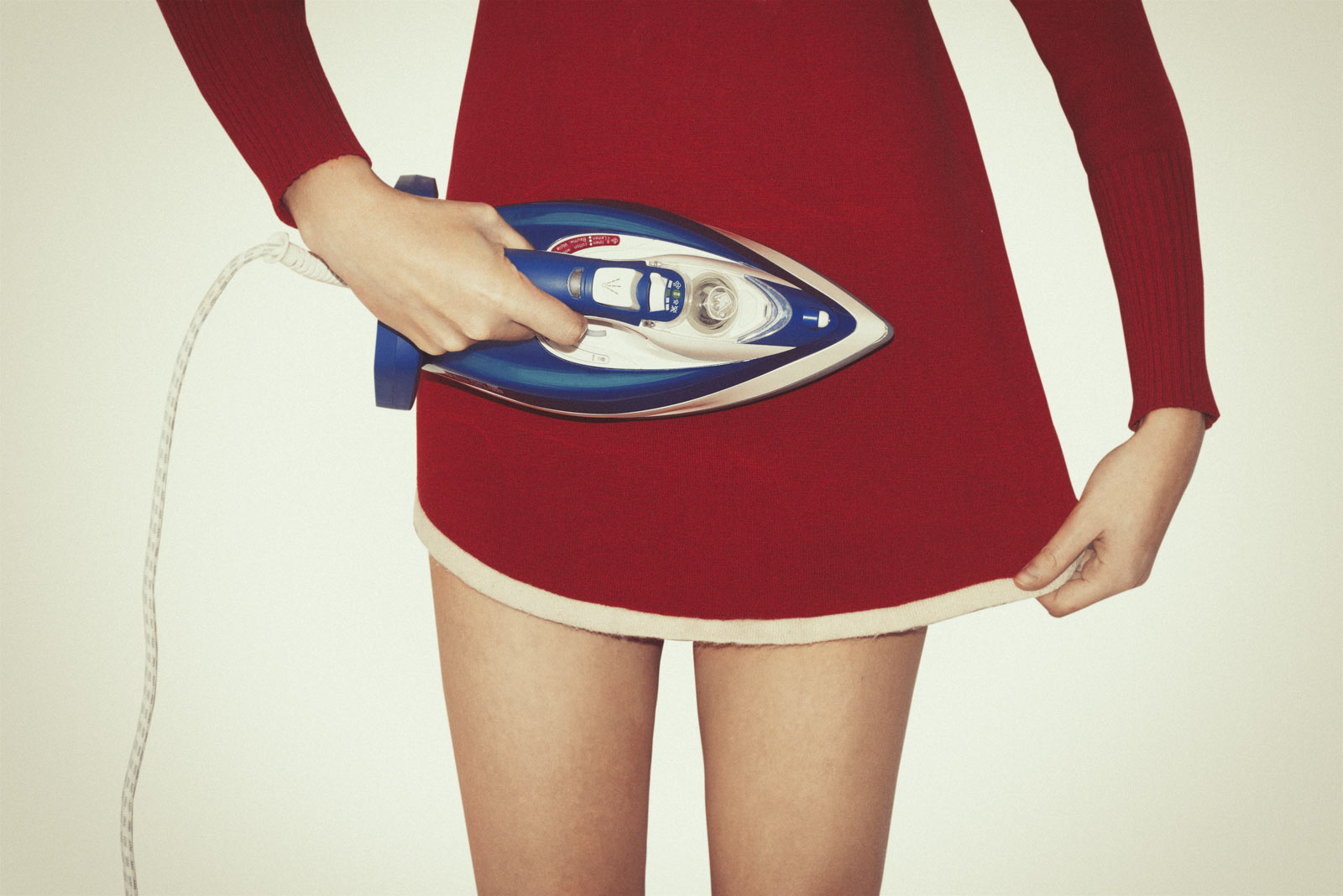
124—
Iodine – the medical scapegoat
Are you one of those females that constantly have to take iron supplements because it feels like it literally goes in one end and out the other? Having to take these pills on a daily basis to maintain the status quo of feeling ‘ordinary’ seems just as tiresome as suffering from iron-deficiency anaemia itself. With all the iron-pill-popping you do, you’d expect to feel like, well — an Iron Women!
Just because you get your period, it doesn’t mean you need to live on iron pills. This is particularly true if you don’t suffer from heavy periods or you’re not following a strict vegetarian or vegan diet. Mother Nature isn’t daft you know. She’s also a fellow sister. To compensate for our monthly sacrifice, she gave us females a coping mechanism. (We just have to eat iron-rich foods to make it work.)
If you’re someone who has to constantly pop iron supplements, then there’s a good chance that you don’t have an iron issue at all. What you may have instead is a digestive issue or an under-active thyroid. It is also possible that you’re bleeding from somewhere other than your uterine lining.
Hopefully, this blog-post will make more sense of this whole bloody iron-pill-popping mess we sheilas have gotten ourselves into.
Iron’s jobs are to:
Help us to breathe
It carries oxygen into our body and carries carbon dioxide back out.
act as a co-factor in many enzymatic processes
These enzymes produce energy in our body.
enable our immune system
This mineral plays a vital role in enhancing our ability to fight microbial infections.
Therefore if you’re deficient in this mineral, its effects on your body are far reaching.
When I first see many of my female clients they are already taking ‘iron’ as one of their daily health supplements. Of these women:
Some aren’t taking enough iron
They are self-prescribing low-dosing retail store iron tablets or liquids (Spatone or Floradix)
Some are taking a lot of iron
They have been prescribed Ferrograd by their Doctor
Some need iron infusions (Or request them from their doctor)
This is because they feel so bad or because supplements simply don’t cut it for them.
SOME OF THEM have RESORTed TO taking BIRTH CONTROL Pills or using birth control devices (I.u.d.s)
It makes more sense to them to control their monthly ‘period’ rather than have to feel substandard for the whole month.
Note: As you may know, I am no fan of birth control pills (or devices) for anything other than birth control. And even then, they should only be used in the initial ‘throws’ of a romantic relationship. My blog-post on ‘The Pill’.
These clients generally have other things in common:
They don’t often know how long a course of iron supplementation Is
Therefore they don’t know what to expect — when they should start to feel better, and when they should start to worry.
None of them get regular blood checks to monitor their progress
If they are constantly taking (or needing) this mineral it is important that they be regularly blood-checked. This would determine whether a new tack should be taken.
None of them actually expect to improve their iron levels substantially
Unless of course they get an iron infusion. Then they expect to be miraculously cured of iron-deficiency anaemia forever! The aim of supplementation should be to make you better, faster + stronger than before.
When you talk to these woman it’s not what you would expect — not all women ‘haemorrhage’ every month (not every woman has a heavy and/or prolonged menstrual cycle). But, it is interesting to hear that many (if not all) suffer from digestive complaints or hypothyroidism.
Note: To determine if the amount of blood you lose monthly is excessive, your health professional will ask you a series of questions: what size tampons you use (if in fact you use these at all), how often you change them, and how many days they are required for use.
Rather than the use of tampons, I recommend the use of menstrual cups to my clients. To find out why, check out the posts I wrote about these nifty wee devices.
The menstrual cup – part 1
The menstrual cup – part 2
DECREASED
Appetite
Concentration
Increased
Headaches
Irritability
Constipation
Weakness
Fatigue
Cold extremities
General Symptoms
Pale + brittle nails
Pale eyelids
Overall pallor (pale skin)
Longitudinal ridges on nails
Brittle hair
Hair loss
Dizziness
Difficulty swallowing
Digestive disorders
Sore mouth (inflamed)
Depression
Restless Leg Syndrome

The serum range for Ferritin (stored iron) for a menstruating woman is: 15-200. You may be told that your blood tests are ‘within range’. (For example that you are ‘normal’ because your ferritin level is 24.)
This result may be adequate for some people, however if you also have low blood pressure or you are a shallow breather, then this combination reduces your overall capacity to provide oxygen to your body (and to remove carbon dioxide).
The overall effect would leave you feeling substandard but unacknowledged by a single blood test.
It pays to look at your health holistically rather in a compartmentalised way.
Note: It’s also important to note that if you suffer from a chronic inflammation or if you have your blood checked during an acute infection, your ferritin levels (stored iron) will look acceptable, but the amount circulating in your blood will be low. Thus you may not be picked up with an iron-deficiency anaemia if they are only testing for ferritin and not trans-ferritin (how the body is circulating iron around).
If you’re eating iron-laden foods — or you’re taking iron supplements to no effect, then it is likely that you have a gut or thyroid problem rather than an ‘iron problem’. The following conditions will affect your iron absorption and/or retention:
Your stomach produces Hydrochloric Acid (HCl). If you don’t produce enough of this you won’t absorb iron well.
So, just as important as taking iron with its pre-requisite Vitamin C, it’s vital you take your iron supplementation straight after a protein-based meal. Eating protein calls HCl into your stomach.
Note: Please consider this point very seriously if you are iron-deficient anaemic and also taking prolonged antacid medication.
Unlike other nutrients, iron is not readily taken into the body (neither is calcium). It is bound within the single cell lining of your gut wall — which acts as a storehouse for this mineral. It is released safely by the body as required.
Note: The reason the body does not allow iron to enter it willy-nilly is that it can prove detrimental in excessive + unregulated amounts.
The more you need iron, the more your body accelerates this activity. Because woman menstruate, we have 4x the ability to uptake iron than men! (Thank you, Mother Nature!)
However, if you suffer from any kind of gut issue (diverticular disease, ulcerative colitis, crohns disease, peptic ulcer, IBS, SIBO, or food intolerance) you may have a problem with this regulatory system. This would mean that you may not get enough iron, or in some cases, that you may get too much!
This is why regular monitoring is essential.
I find that all of my clients with iron deficiency also have Thyroid dysfunction and/or an iodine deficiency. (Unless of course they are simply not eating enough iron-laden foods.)
And it is also interesting to note, that even a mild case of Hypothyroidism can lead to excessive menstrual blood loss.
Note: Iron-deficient anaemia can also be a result of other hormonal dysfunction e.g. excess oestrogen.
Please see the following posts I’ve written about poor thyroid function:
Thyroid dysfunction
Thyroflex — accurate Thyroid function testing
Iodine Deficiency
Iron-deficient anaemia can also be a sign of: chronic inflammation e.g Osteo-arthritis or Rheumatoid arthritis, cancer, major illness, liver disease, repeated pregnancies, surgery, or performing strenuous exercise (perspiring heavily will exacerbate this effect).
Note: Please be sensible. If you do have issues maintaining your iron levels then don’t donate blood. You actually need it yourself.
You may mistake a long-term (or extreme) case of iron-deficiency for an anxiety disorder. When you are anaemic you can get all the signs of nervousness:
Heart palpitations
Breathlessness
Dizziness
Experiencing these physical symptoms will make you feel mentally anxious.
Don’t take opposing supplements at the same time
Calcium + magnesium + zinc + vitamin E all fight for the same receptor sites.
Don’t go crazy eating too much fibre
Fibre modulates gastrointestinal functions such as motility, acid secretion, and hormone release which can indirectly affect the way minerals are absorbed. The phytates that are found in plant food also affect the absorption of minerals.
Don’t drink too many green smoothies and eat too many nuts
Excessive intake of oxalic acid in certain foods will inhibit the absorption of iron. (These foods include kale, cacao, almonds and cashews…)
Don’t drink too much coffee, tea, and/or wine
These beverages contain compounds that impede the absorption of iron.
It takes 12-16 weeks to make a new batch of Red Blood Cells (RBC).
At the completion of a ’12-16 week’ course of iron therapy you should have repeat blood-work done to assess your performance. (Hopefully you’ll notice yourself feeling better as you build blood, and your ‘energy enzymes’ start firing.)
If there is no significant increase in your ferritin levels you should ask your health practitioner to investigate further. You may have an absorption issue, iron transportation issue, hypothyroidism or you may be bleeding from elsewhere e.g. uterine fibroids, haemorrhoids, or anal fissures.
Note: Things aren’t always as straight-forward as they appear. Rather than losing iron in menstrual blood, a female may be taking anti-inflammatories (aspirin or ibuprofen) for a completely unrelated medical condition that contributes to her iron loss via gastrointestinal bleeding.
Because it does take time to make a whole new batch of Red Blood Cells (RBCs) you want to replenish these as fast + efficiently as possible.
The iron supplements that you can get from a retail store are very low dosage — as iron can be dangerous if not taken correctly. The recommended dose given on the package is therefore very modest.
I only ever prescribe iron based on an inadequate ferritin reading — even if you are pregnant, lactating, vegetarian, vegan, suffer from heavy periods, or you’re elderly.
I only ever prescribe iron supplements that don’t irritate your intestinal system or cause constipation.
And, I only ever prescribe 1x course of iron therapy before I start investigating other causes for poor absorption or retention of this mineral.
Your body is pretty crafty. During a bacterial infection your body actually sequesters iron (hides it) from foreign invaders — otherwise they can use this mineral against you.
It is a waste of time to supplement during this time as your body will deny it access.
Lisa Fitzgibbon is a degree qualified (2006), experienced and registered Naturopath & Medical Herbalist. She runs her own private practice – OOMPH in Grey Lynn, Auckland, New Zealand.
Lisa has been involved in the Natural Health industry for 16 years. She draws on her professional training and experience, as well as her own personal experience to bring you realistic, holistic health advice.
Book onlineIron intake is not recommended for anyone who has Hemachromatosis, Thalassemia or Sickle Cell Syndrome.
Subscribe to LISA SAID SO
Subscribe to the LSS newsletter to get updates on a very irregular basis.
Sorry for the interruption!
You seem to be interested in what Lisa has to say. To be updated when new articles are published, or we have news to share, enter your email below. Thanks!